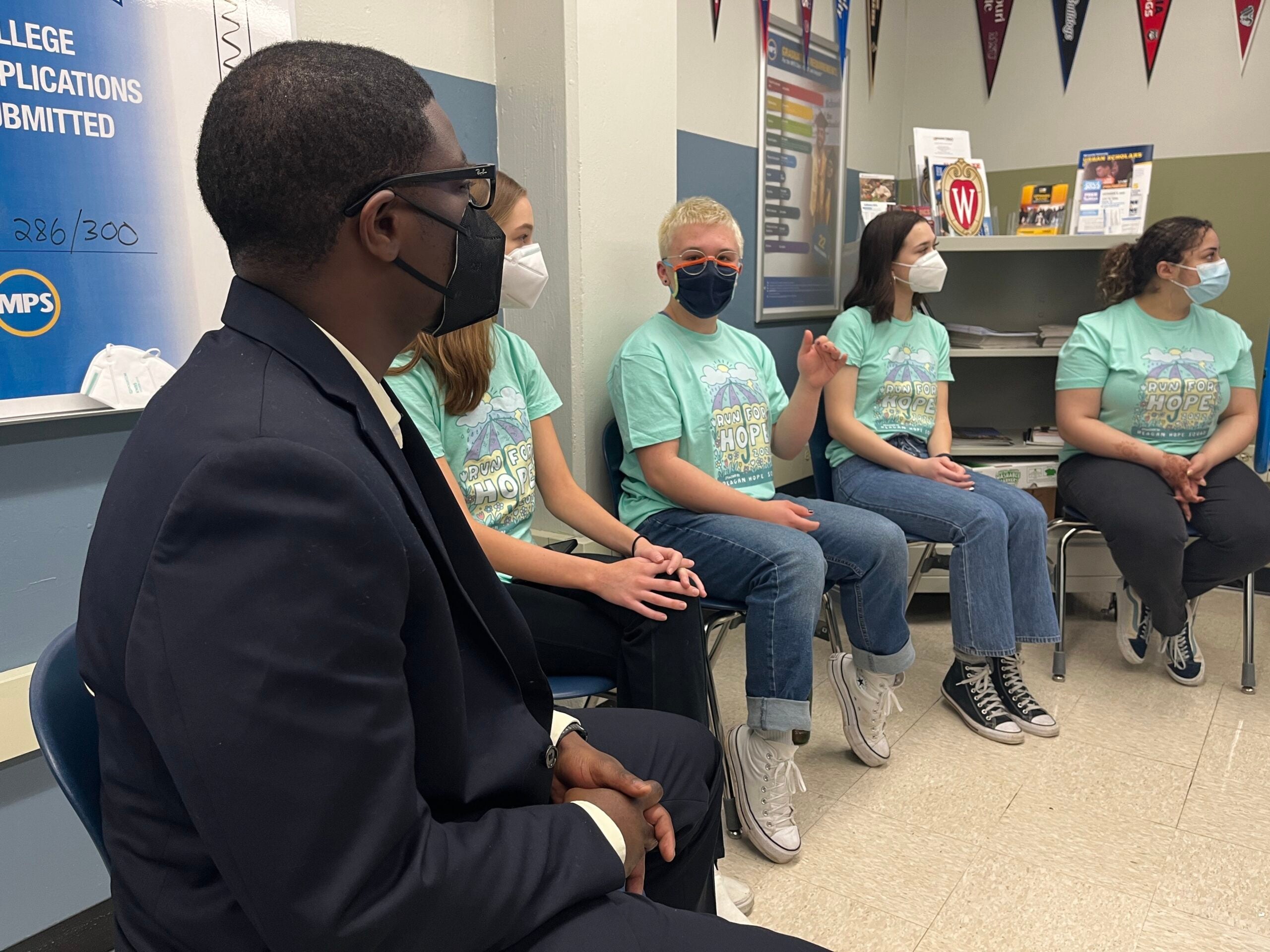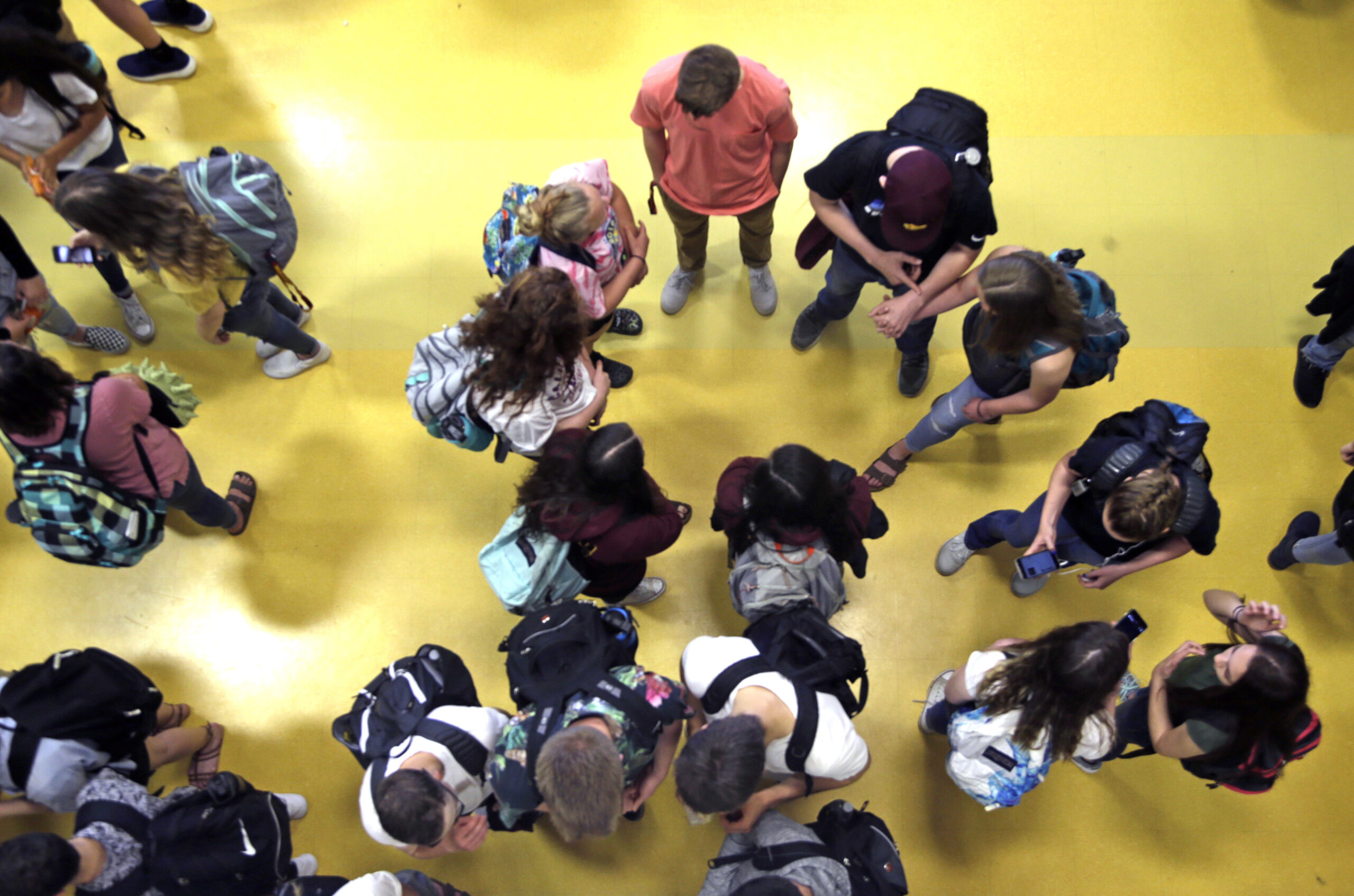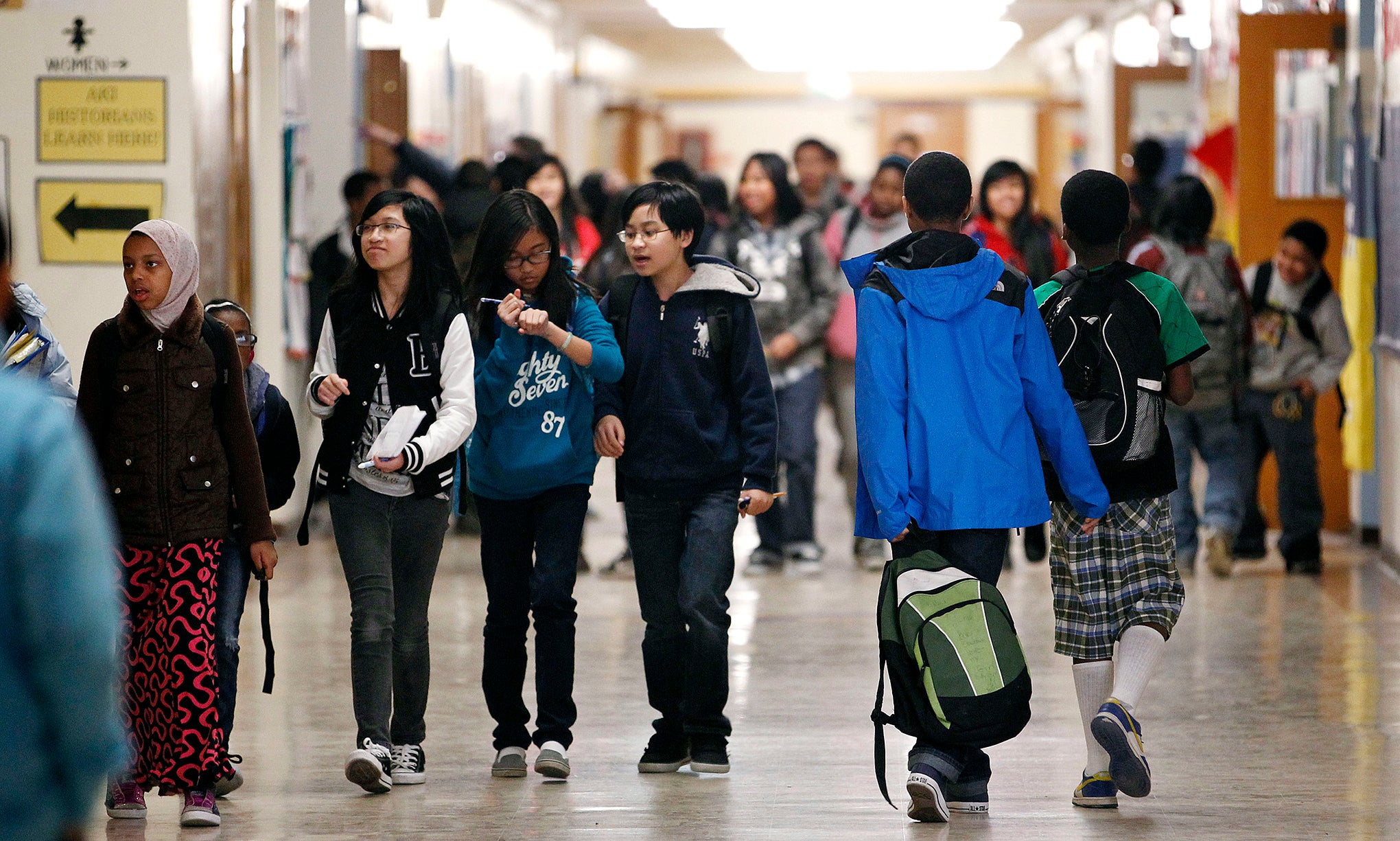Even before the pandemic, a mental health crisis among students was deepening in Wisconsin and across the nation. The isolation, fear and loss of the past two years further exacerbated the issue — emergency room visits for kids in mental health crisis increased by double-digit percentages across age groups, and an estimated 140,000 children lost a parent or caregiver to COVID-19 as of June 2021.
A group of students at Ronald Reagan High School on Milwaukee’s south side are tackling the issue with a student-driven network of social support.
Reagan students and staff started developing the Hope Squad in 2019, and got it up and running in a virtual format during Milwaukee Public Schools’ period of pandemic virtual learning. The group consists of about 30 students, chosen in each grade level by their peers through an online poll, who are trained and willing to talk their fellow students through mental health struggles and help them find resources.
Stay informed on the latest news
Sign up for WPR’s email newsletter.
“Going to school is the one place we can all connect. Going to school is the one thing we have in common where we’re all able to go to the same place and receive the same resources,” said senior Max Kiekhofer. “That’s why investing in something like mental health, that gives everyone access to the same thing in order to make sure everyone is OK, is what I think we should invest in the most.”
The students use a technique called Question, Persuade, Refer, or QPR, to respond to warning signs that a student might be thinking about suicide. They ask questions, persuade the person to seek and accept help, and, in the words of senior Rayna Wachowiak, “link arms and you Wizard-of-Oz over to the counselor’s office, and you say, ‘OK, I’m here if you need any additional help, but here’s somebody who can provide you with additional resources.’”
Reagan students and staff set up the Hope Squad in response to several suicides at the school, said senior Noor Hamed.
“Knowing that we had lost somebody previously, the last year and our sophomore year, I was like, it sounds like it’s going to be something that’s going to work and it’s going to help,” she said. “I think it shows people that we are serious, this is real, this is resources, it’s a community.”
The plan for a Hope Squad similarly gained traction at Walworth County schools after a cluster of student suicides, and there are chapters at schools in Ashwaubenon, Oregon and De Pere.
Senior Emily Roemer talked about the mental health challenges of social media, which she said can be a double-edged sword.
“It can just be a place where you share your emotions, and have others relate and support you on social media; however, it can also be very toxic considering who you follow, who you interact with, what content is being pushed out to you, because you kind of really don’t have control over algorithms on social media,” she said. “Once you leave social media feeling worse than when you got on it, that’s when it starts getting toxic, because you’re interacting with content that is making your mental health worse.”
Eight of the Hope Squad members, all seniors, spoke to Milwaukee County Executive David Crowley on Tuesday morning about how they’d like to see efforts like theirs in other Milwaukee schools and across the county.
“This is something near and dear to me. I grew up in a household that had a lot of mental health challenges as well as substance use, and it was a thing that we didn’t understand because of the stigma that was out there,” Crowley said. “The QPR, I think that’s something that we should be teaching all individuals, because we have to normalize these conversations, and when we sweep these kinds of conversations under the rug, we start to see what we’re seeing in the community with substance use, with violence, with acting out because of their emotions, and not feeling that they have someone to talk to.”
The seniors were excited that the county took an interest in their peer-to-peer network.
“It just makes me feel like it matters, wow — some validation in our cause,” said senior Zeno Wilson.
Wisconsin Public Radio, © Copyright 2025, Board of Regents of the University of Wisconsin System and Wisconsin Educational Communications Board.






